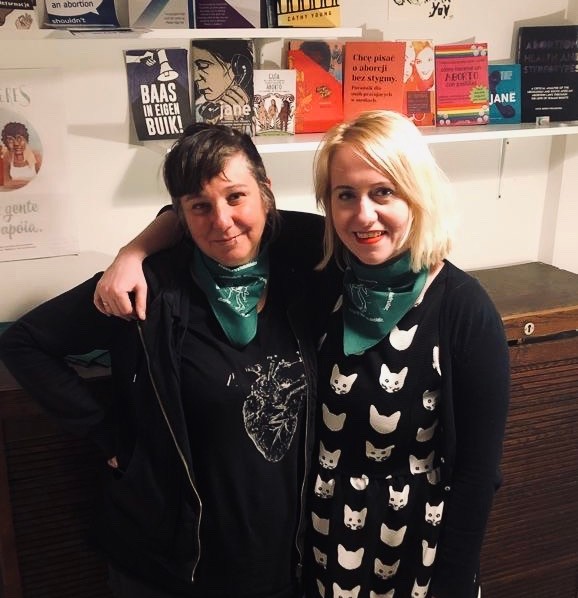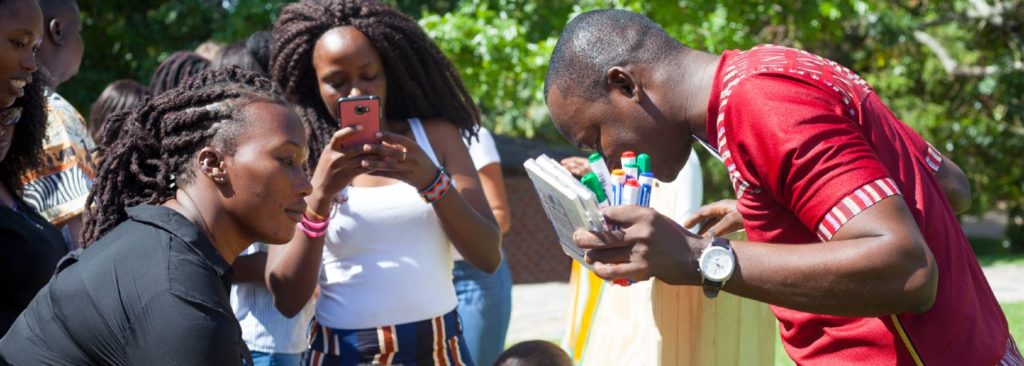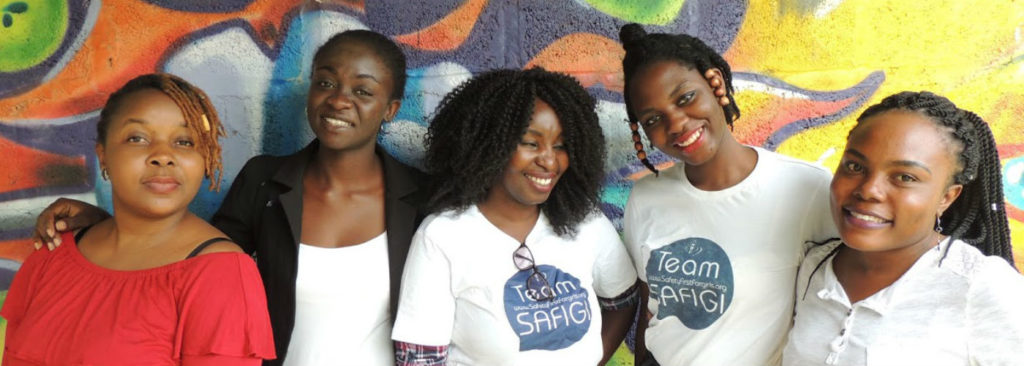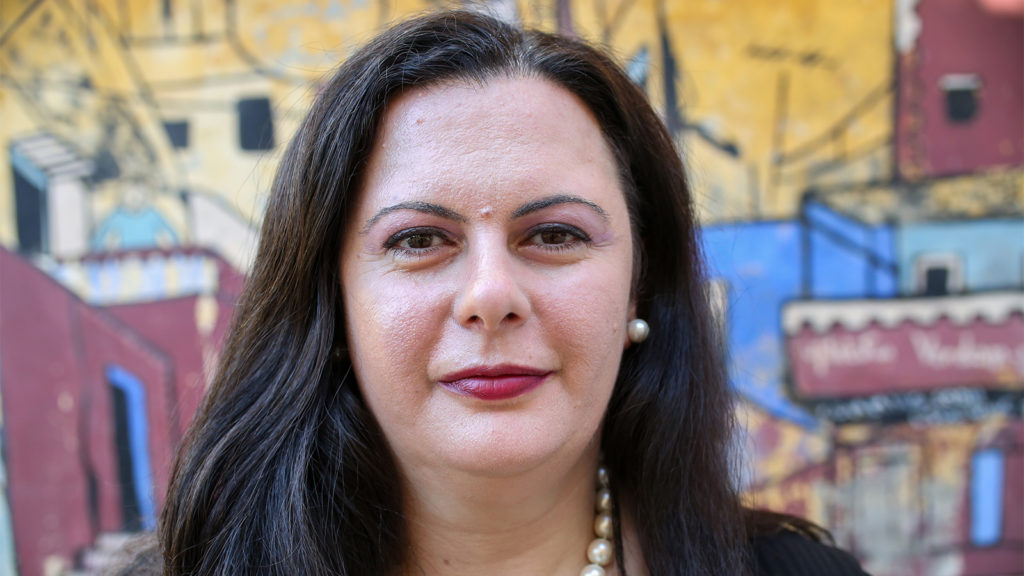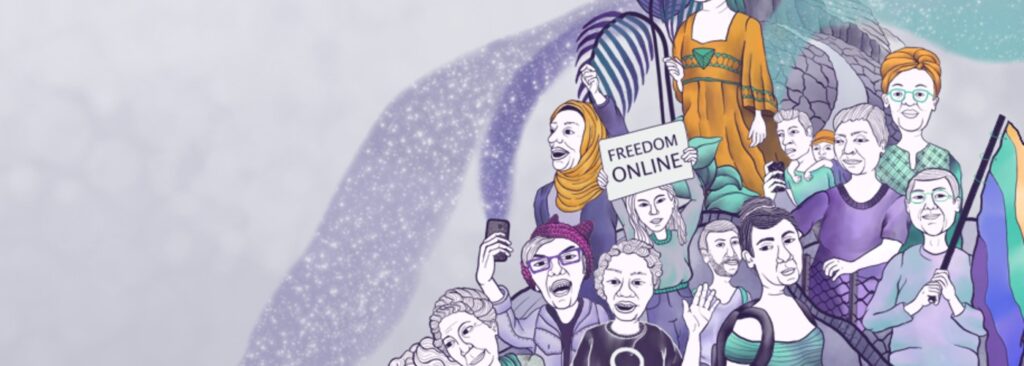“We have a unique perspective,” is how Kinga explains what Women Help Women is facing in times of COVID-19. Her organization runs a platform that facilitates direct access to safe, self-managed abortions. While she sees how women around the world are disproportionally affected by the corona virus and the measures taken to prevent its spread, Kinga points out that these social restrictions are also creating a much-needed rationalization of abortion policies.
When we spoke to Kinga almost half a year ago, she told us how Women Help Women’s online service allows people “to take their health and their lives into their own hands.” We discussed the importance of technology in providing independent and uncensored informational about abortion. This month, her organization should have attended a Hivos-sponsored training aimed at increasing her team’s digital security capacity. The training was canceled due to travel restrictions. Unfortunately, the sensitive nature of her work and corresponding digital safety concerns ruled out an online version of the course as an alternative. But we wanted to check in with Kinga anyway to see how her organization is coping with COVID-19.
Women’s rights and COVID-19
Recent developments, according to Kinga, have once again underscored the precarious situation many women find themselves in. The UN is calling for measures to address a “horrifying global surge in domestic violence,” linked to lockdowns to prevent the spread of the COVID-19 virus, a worrying situation that Women Help Women also observes. In the emails Kinga and her team receive from around the world, women share their experiences. Kinga: “We read and hear from our partners how women are stuck in the house with an abusive partner. They explain how staying at home might mean hunger, isolation and gender-based violence.” Even when these issues are not present, the stay-at-home orders and lockdowns mean that for many, contraceptives are unavailable. So there is a higher risk of an unplanned pregnancy. Those with unwanted pregnancies do not have access to services in the formal or informal sector, so access to abortion is severely restricted.
Women explain how staying at home might mean hunger, isolation and gender-based violence.
Lockdowns also influence Women Help Women’s fight against archaic abortion laws. Kinga notes how conservative governments are using this period to push for anti-abortion legislation. She points to her native Poland where a vote in parliament was recently held on a law further restricting abortion. “They organize a vote knowing people can’t take to streets to protest this piece of legislation.” Like many human rights activists, Kinga fears that the Polish and other governments will take advantage of this situation and pass even more restrictive anti-abortion legislation.
To Kinga this underscores how important Women Help Women’s work is in mobilizing activist resilience to counter – and even safely circumvent – these laws.
De-medicalizing abortion
Despite these concerning developments, Kinga also witnesses an interesting shift in attitude and practice in the formal healthcare system. “We see that the model we use, which is based on tele-consultation to administer safe abortions at home, is gaining traction.” Kinga explains that the current COVID-19 crisis has a positive side-effect. In many countries – like Italy, the UK, France, the USA and Spain – abortions are medicalized, meaning people have to go to a clinic to get an abortion. In the middle of the pandemic, the health systems in many of these countries are over-stretched and almost solely aimed at treating COVID-19 patients. This pushes clinicians to simplify abortions and take them out of a clinic.
“We’re seeing a rational move towards de-medicalization. There’s momentum for fewer tests and less interaction with medical providers. We’re even approached by authorities and clinics to share how we use tele-medicine and tele-consultations.” Even though Kinga is quick to say this should have happened long ago, she is pleased to see people and institutions realizing that hospitals and clinics are not the only places where one can have a safe abortion.
Our work is not just about public health. It’s about the universal right to information.
And while the above-mentioned governments might have a more practical motivation for this shift in attitude, it is a deeply rooted conviction for Women Help Women. “We need to emancipate the medicine when it comes to abortions.” Or, as she put it in our previous interview: “Our work is not just about public health. It’s about the universal right to information, bodily autonomy and self-determination.”
Day-to-day reality
When asked how the pandemic affects her day-to-day work, Kinga’s positive attitude shifts to one of concern. “All of our programs are affected,” she summarizes. Besides distributing information, Women Help Women also facilitates access to abortion pills. Getting the pills to those that need them around the world is very complicated. “Our work changes every day. Everything is determined by movement restrictions and disrupted postal systems. When these are in place, we can’t arrange for shipment of the pills.” These restrictions are different in each country and even within countries, and tend to change rapidly.
Another concern is the supply of the abortion pills themselves. In our globalized production system, most medicines are made in China and India. “The fear that is felt by the entire sexual reproductive health and rights (SRHR) movement is that we will eventually be faced with stock-outs of important medicines.”
Access to information
Whatever happens to the production of medicine, or new restrictions as governments use this pandemic to tighten their grip on abortion legislation, information is as important as ever. To underline this, Kinga points to a Women Help Women project in Africa. There, internet access is an issue. “Some of the 37 partner organizations,” she explains, “do not reply. We know they only have access to internet in their offices, and lockdowns prevent them from going to work. We’re trying to get phones and data to them so they can be online and reachable.”
It’s just one example of the question that Women Help Women aims to answer – pandemic or not: How do we get trustworthy and independent information to the people who actually need it?


